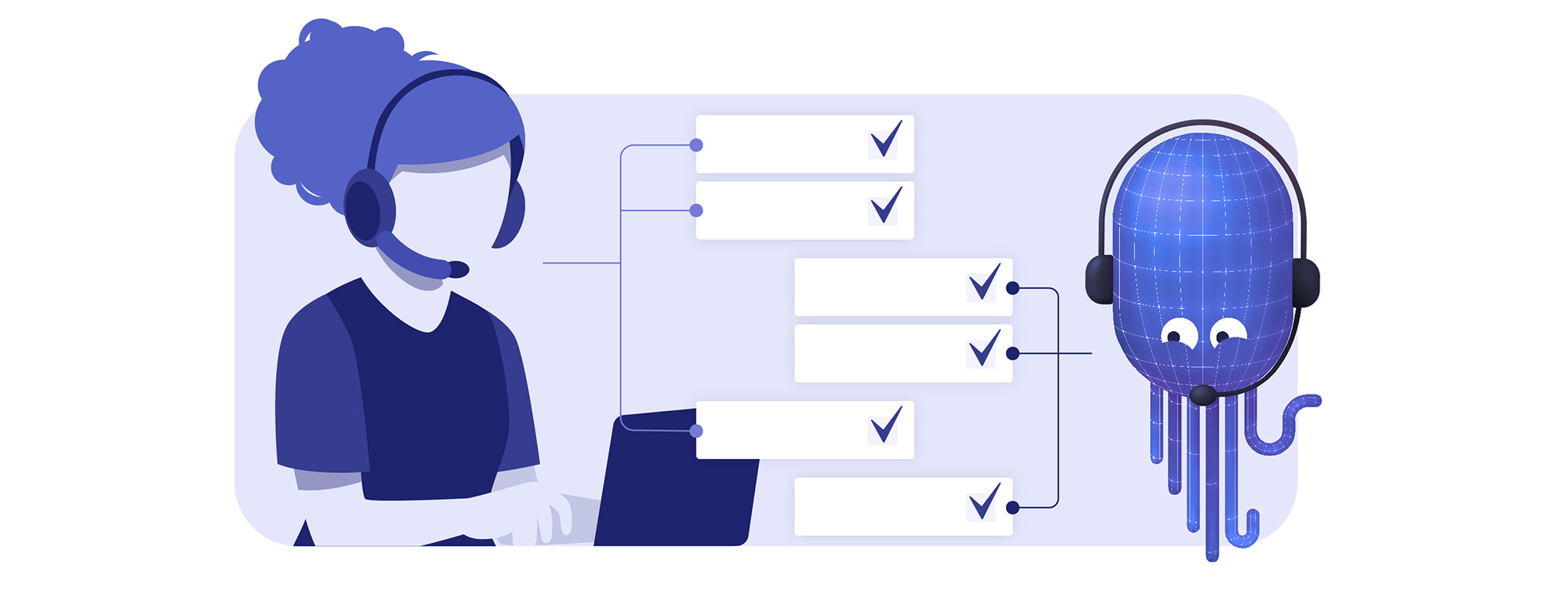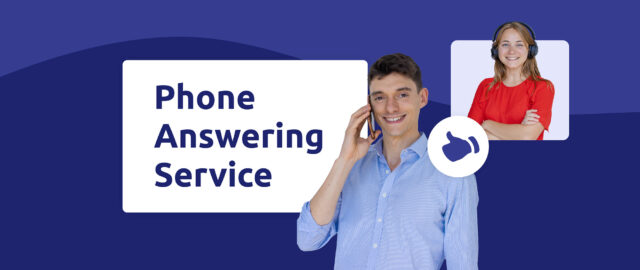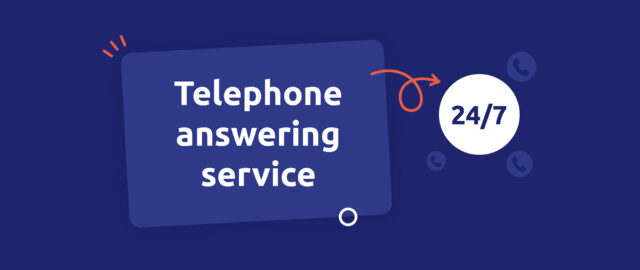The Strategic Importance of a Phone Answering Service to Avoid Customer Frustration
A phone answering service is often underestimated. Yet, it is a strategic lever for any company that cares about customer satisfaction.
As the first point of contact with the brand, it sets the tone for the relationship and encapsulates expectations. A phone answering service is an opportunity to reassure, demonstrate attentiveness, and efficiently address the customer’s request.
However, it is also a moment of truth where the customer puts the brand’s promise to the test against its operational reality.
If the experience is positive, it strengthens the customer’s trust and engagement. But if it is negative, the consequences can be immediate.
It is estimated that 61% of consumers are willing to stop purchasing from a company after a negative experience.
Unfortunately, there are many sources of frustration related to phone answering services:
- Excessive wait times before reaching a representative.
- Too much time navigating through voice menu options.
- Too many questions to identify yourself and explain your issue.
- Too many transfers between departments.
- Generic responses that lack personalization.
- Agents who are either unavailable or unable to provide solutions.
In short, too much time wasted and energy spent for a service that does not always meet expectations, leaving the customer feeling misunderstood and shuffled around.
Never forget that a customer frustrated by a poor phone answering service may not only choose not to continue but could also share their disappointment with others on social media or review platforms, tarnishing the brand’s image long-term.
Providing a high-quality phone answering service is therefore crucial to protecting and growing your customer base through positive word-of-mouth. This is especially important at a time when consumers expect ultra-fast, personalized service.
How Bots and AI Reduce Frustration in Phone Answering Services
To meet these new customer experience standards, businesses should take full advantage of artificial intelligence technologies. AI-powered voicebots and virtual agents can automate parts of interactions and efficiently address many sources of frustration.
Using natural language processing, a conversational voicebot can understand a customer’s spoken request, identify their need, and direct them to the right resource. Within seconds and with no effort, the customer can naturally express their request and connect with the appropriate representative.
As a result, wait times and routing errors are significantly reduced.
Whether it involves frequently asked questions, information requests, or simple transactions, AI today can provide relevant and comprehensive answers. This is the main advantage of AI-based technologies: delegating simple requests to machines. AI is an excellent way to free up phone lines and allow agents to focus on higher-value requests.
Additionally, by leveraging customer knowledge data, AI and virtual agents can tailor their responses to individual profiles, offering personalized and contextualized phone answering services. Exploiting customer data enables ultra-personalization.
Best Practices for a Successful and Frustration-Free Phone Answering Service
Beyond technology, the quality of a phone answering service also depends on proven practices centered around the customer’s needs and expectations.
Here are some basic principles to follow in order to deliver a successful phone answering service and minimize frustrations.
Be Responsive from the First Seconds
First impressions matter.
From the very first moments of a call, it is important to show the customer that they are being attended to. This begins with quick handling of the call, avoiding excessive wait times.

A standardized phone greeting, with a clear welcome message (“Company X, good morning, how can I help you?”), helps create a positive atmosphere right from the start. Conversely, a customer left on hold for too long, accompanied by impersonal background music, will immediately form a negative impression.
Show Empathy and Consideration
Beyond responsiveness, customers value the relational quality of the exchange and how their request is received with consideration.
Many frustrations stem from feeling unheard, misunderstood, or not taken seriously.
Phone advisors should therefore practice active listening, reformulate the customer’s request to demonstrate understanding, and adopt a warm and caring tone.
Small gestures also make a difference: addressing the customer by name, consistently using polite language, and expressing gratitude.
A good phone answering service is also personalized. Avoid standard, preformatted responses, and instead tailor the conversation to each customer’s profile and context.
The agent must demonstrate they know who they are speaking to and are familiar with their history.This requires having a centralized customer database (like a CRM system) to access customer history and details.
Provide Precise Answers and Guide the Customer
Delivering precise and tailored solutions to the customer’s needs is a fundamental pillar of a successful phone answering service.
Effective problem qualification helps accurately define the issue and identify the right solution.
The advisor must also clearly communicate the next steps and timelines, reassuring the customer and creating trust.
For complex or technical issues that fall outside the scope of first-level phone answering services, a transfer may be necessary. In such cases, the agent should proactively guide the customer, explaining the process and ensuring that all relevant information is passed along so the customer does not have to repeat themselves.
Train and Equip Agents to Enhance Efficiency
The quality of your phone answering service also depends on your ability to effectively support your agents.
To implement best practices successfully, agents need to be:
- Properly trained.
- Properly equipped.
Training should cover both phone answering techniques (communication skills, phrasing, handling sensitive situations, etc.) and the job-specific knowledge required to qualify requests and provide suitable responses (offers, processes, etc.).
The goal is to foster a proactive, solution-oriented mindset. This involves understanding the root causes of customer frustration—unmet expectations, wasted time—and addressing them proactively.
In this context, Quality Monitoring is an invaluable tool. It allows for in-depth analysis of interactions between agents and customers to identify strengths and areas for improvement.
Quick Fact: Diabolocom’s Quality Monitoring feature automates analyses, increasing evaluation coverage from 0.3% to 100% of calls.
Additionally, call reviews and detailed dashboards enable supervisors to objectively assess each agent’s skills—such as the quality of customer handling, script adherence, and empathy—and provide personalized recommendations.
At the same time, empowering agents involves equipping them with the right tools:
- A robust call center software like Diabolocom’s, which leverages advanced AI capabilities and supports omnichannel interaction management.
- An updated and accessible knowledge base, enabling agents to provide quick and accurate answers to customer inquiries.
- Step-by-step call scripts to guide agents through interactions.
- And, of course, a CRM system to centralize customer information.
Balancing Technology and the Human Touch to Reduce Frustration
While automation and AI are powerful tools for streamlining phone answering services, they are not a cure-all.
Some complex requests or sensitive situations will always require human intervention to ensure a personalized response. The real challenge lies in finding the right balance between bots and humans to leverage the strengths of both.

This calls for a complementary and tiered approach: bots handle what can be automated, freeing up humans to focus on high-value, specialized cases.
This involves carefully designing phone service workflows and creating seamless handoffs between bots and agents as needed.
For instance:
- If a customer calls for basic information, the bot can deliver a complete and instant response.
- For complaints or inquiries requiring specialized expertise, the bot can qualify the issue and transfer the call to a skilled agent. The agent, equipped with contextual data, can seamlessly take over.
This task allocation offers three key benefits:
- For the Customer: Immediate answers for simple requests and smooth access to experts for complex ones. They gain autonomy and responsiveness.
- For the Agent: Relief from repetitive tasks, allowing them to focus on their core expertise. They engage at the right time, with the right information, creating more value.
- For the Business: Resources are optimized by using bots for high call volumes while maintaining a human, empathetic touch where it matters.
Conclusion
Phone answering services remain a vital customer experience touchpoint, offering proximity and empathy absent from digital channels. However, it is also a source of friction and frustration for many customers.
To meet the demands of increasingly discerning and volatile consumers, phone answering services must evolve to become faster, more efficient, and warmer.
This transformation involves embracing AI, which enables effective automation of time-consuming tasks and allows agents to focus on high-value activities.
The goal is to create an “augmented” phone answering service that combines AI’s strengths with human expertise, emphasizing personalization and improved service quality.
This is the essence of Diabolocom’s mission: leveraging AI to enhance agents’ autonomy and empathy, driving continuous improvements in customer satisfaction.
Request a demo of our solutions to learn how to optimize your phone answering service and eliminate customer frustrations starting today.
Enhance Your Phone Answering Service with Our Agent Assist



